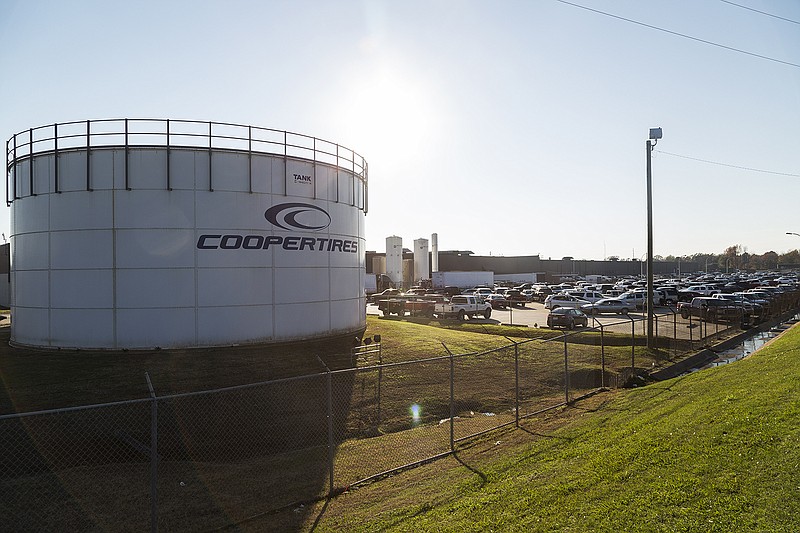Cooper Tire and Rubber Co. will get up to $250 million in financing and a property tax break, the Texarkana, Ark., Board of Directors decided Monday.
At its regular meeting, the board approved issuing industrial revenue bonds to fund improvements to Cooper's local plant and agreed to a 65 percent reduction in property tax on anything bought with the bonds.
Cooper might not need all the bonds authorized, said the city's bond counsel, Thomas Leggett of Little Rock law firm Friday, Eldredge and Clark.
"These bonds are not to exceed $250 million, which means the company would just draw down periodically what it would take for capital costs over a period of five years. And if it takes the full amount, then that's what we're going to draw down. If not, it's just whatever the company needs for the capital costs," he said.
The money will pay for capital and equipment at the plant over about five years, said Curtis Schneekloth, manager of Cooper's Texarkana distribution center.
"I realize it sounds like a very, very large number, but it's really for continued investment in the plant to make us more competitive. It's not a large-scale expansion outside of the existing plant. That's not what we're planning on right now. But this will cover our needs for several years, hopefully five-plus years, just for capital and equipment that we're putting in the plant. Having this in place will really help us convince our friends at corporate to putting 30, 40-plus million dollars a year into this plant," he said.
Leggett emphasized that the deal will not cost anything to taxpayers and the city will never be liable to repay the bonds.
"All the payments on the bonds would be made by Cooper Tire and Rubber Co. There's absolutely no city money involved, tax or otherwise," he said.
Industrial revenue bonds are a way for government to attract businesses by reducing their tax burdens and making their debt less expensive.
The city will issue the bonds on behalf of Cooper, which will be solely responsible for repaying them. The city will own title to any property bought with the bonds and lease it back to Cooper, with the company's lease payments going toward servicing the bond debt. When the bonds are paid off, title will transfer to Cooper.
The bonds "are really corporate bonds disguised to look like municipal bonds," and they allow a private company "to benefit from the government's status as a tax-exempt entity and its ability to issue debt obligations at tax-exempt rates," according to the Council of Development Finance Agencies' website.
That means Cooper will spend less to repay the bonds because the city's involvement makes their interest tax-exempt.
What Cooper buys with the bonds will also be exempt from property taxes, so part of the deal is a payment in lieu of taxes, or PILOT, arrangement. Cooper has agreed to pay the city 35 percent of what it normally would pay in taxes on its new property. In effect, the result is a 65 percent property tax break.
"We are pleased, gentlemen from Cooper, that we are expecting you to be here for a lifetime," Mayor Ruth Penney-Bell said.
The board also voted to accept the city's latest financial audit and heard a first reading of an ordinance introduced by Ward 2 Director Laney Harris that would establish a citizens' parks and recreation advisory board.
After a brief executive session, the board voted to appoint Sandy Varner to the city Advertising and Promotion Commission. Varner is co-owner of Pop's Place restaurant on East Broad Street.
The board's next regular meeting is scheduled for Aug. 21.
On Twitter: @RealKarlRichter

